Unit 8B - Decolonization
1/30
There's no tags or description
Looks like no tags are added yet.
Name | Mastery | Learn | Test | Matching | Spaced | Call with Kai |
|---|
No analytics yet
Send a link to your students to track their progress
31 Terms
Partition 1947
British India split into 5 different countries: India, West Pakistan, East Pakistan (Bangladesh), Myanmar, and Sri Lanka.
- Why?: Religion; Islam differed from Hindu India.
Demographic Effects of India Partition
- the new borders sparked conflict that got out of control, leading to about 1,000,000 deaths.
- the new borders resulted in one of the largest migrations in human history, forcing 10,000,000 South Asians to move overnight.
Social Effects of India Partition
- Punjab was split between West Pakistan and India, leading to 10,000,000 forced migrants to cross borders
- Bengal was split between East Pakistan and India. In East Pakistan, the Urdu language was pushed to create unity, while Bengali was discouraged.
- Bengalis had to struggle with how to define their nationalism. "Are you Muslim or a Bengali?"
Cyril Radcliffe
The British man who drew India's new borders
- July 1947
- He had no experience in South Asia
- Chaos and violence erupted immediately after his QUICK division
New Pakistan regions
P - Punjab
A - Afghania
K - Kashmir
S - Sindh
TAN - Balochistan
Mahatma Gandhi
- Activist who sought independence from the British (lawyer originally)
- Goal = Unified India
- Employed nonviolent disobedience
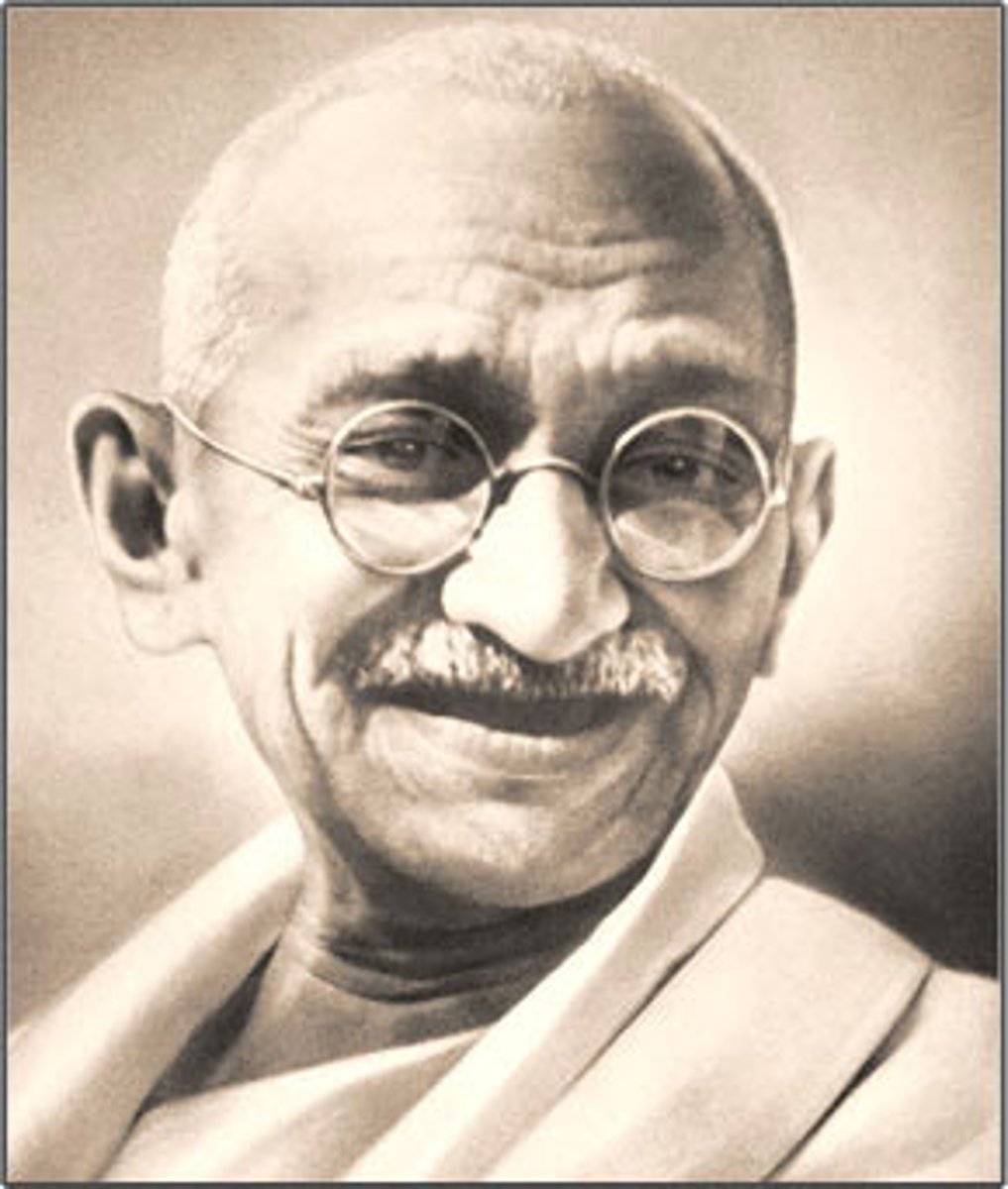
Muhammad Ali Jinnah
- He led the All-India Muslim League from 1913-1947
- Goal = A separate state for (S. Asian) Muslims
- Lawyer
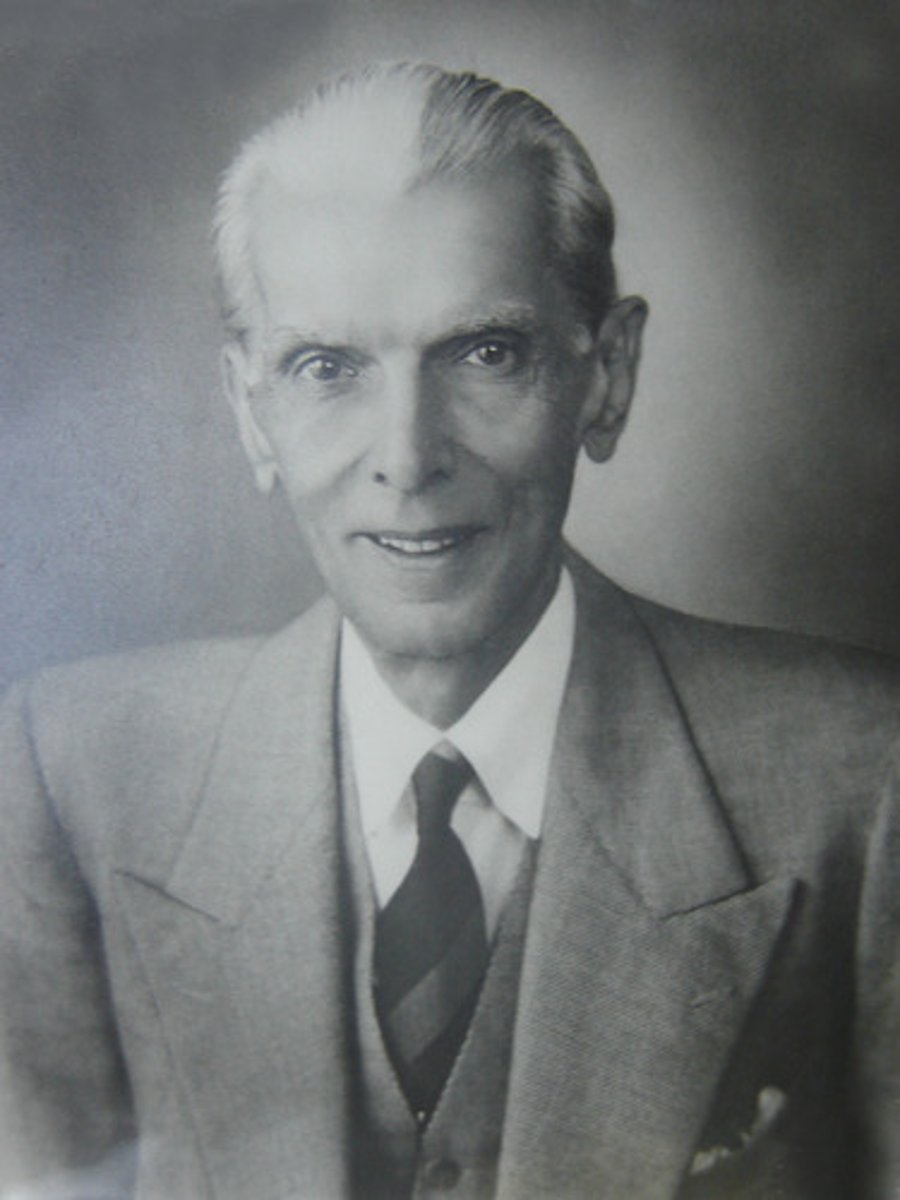
Jawaharlal Nehru
- First prime minister of independent India (1947-1964)
- Goal = unified India
- Lawyer
- Tried Keeping India Non-Aligned in Cold War
- Pushed for land reform after British to redistribute land to poor
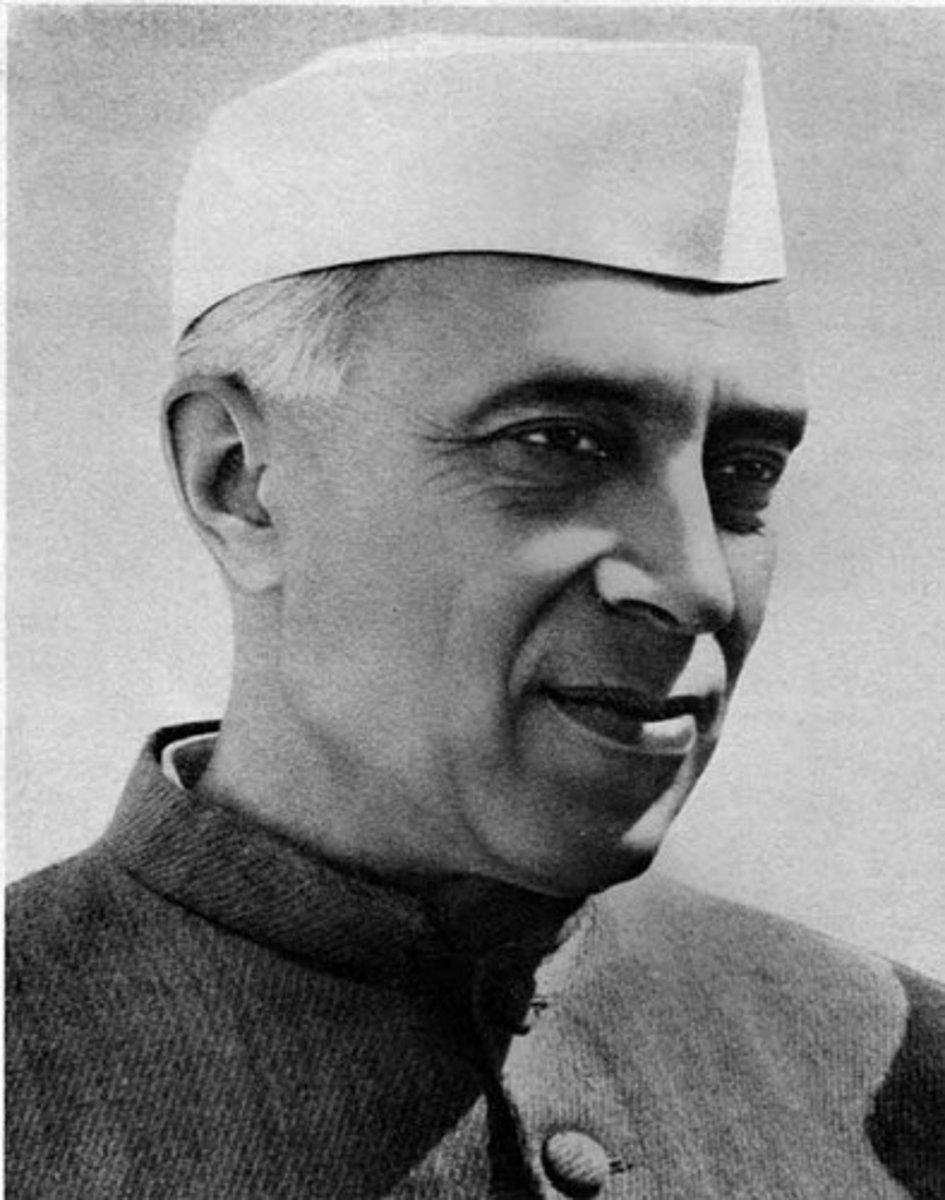
Kerala
First ever communist government in India (1957)
- Heavily imposed land reforms and promised education
- Promised peasants/farmers land rights and the right to purchase their land
- Promises were resisted, but peasants had a better standard for living
Sukarno
First president of independent Indonesia
- Highly educated
- Came from diverse religious and ethnic background
- He was a polyglot and used radio to communicate to Indonesians in many languages
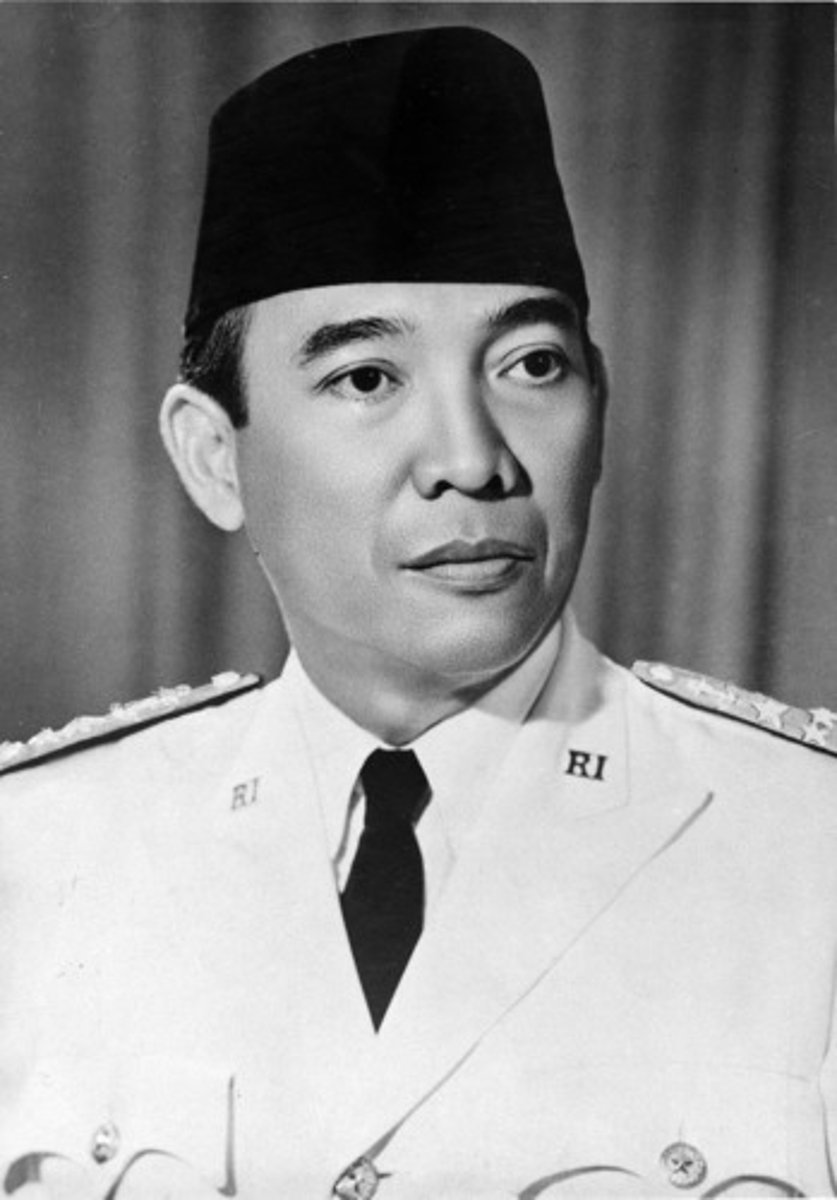
Pre-Indonesia Independence
Before:
- The Dutch ruled Indonesia for centuries.
- The Japanese controlled Indonesia during World War II (teaching Indonesians military skills).
- Once independent, Indonesia became a "guided democracy" that resisted the Cold War.
Bandung Conference
In 1955: The meeting of 29 Asian and African countries EXCLUDING the US and USSR
- Goal = Unify newly independent post-colonial states into a non-aligned movement to resist the Cold War
- Also promoted peace and discussed decolonization
Pan-Asianism
Concept that all Asian countries should unite against Western imperialism. It boosted early independence movements, but it was ultimately a failure via JAPAN and fell apart.
Ho Chi Minh
Leader of the Vietnamese independence movement against French colonial rule
- Founded Viet Minh, a nationalist group, that defeated France in 1954
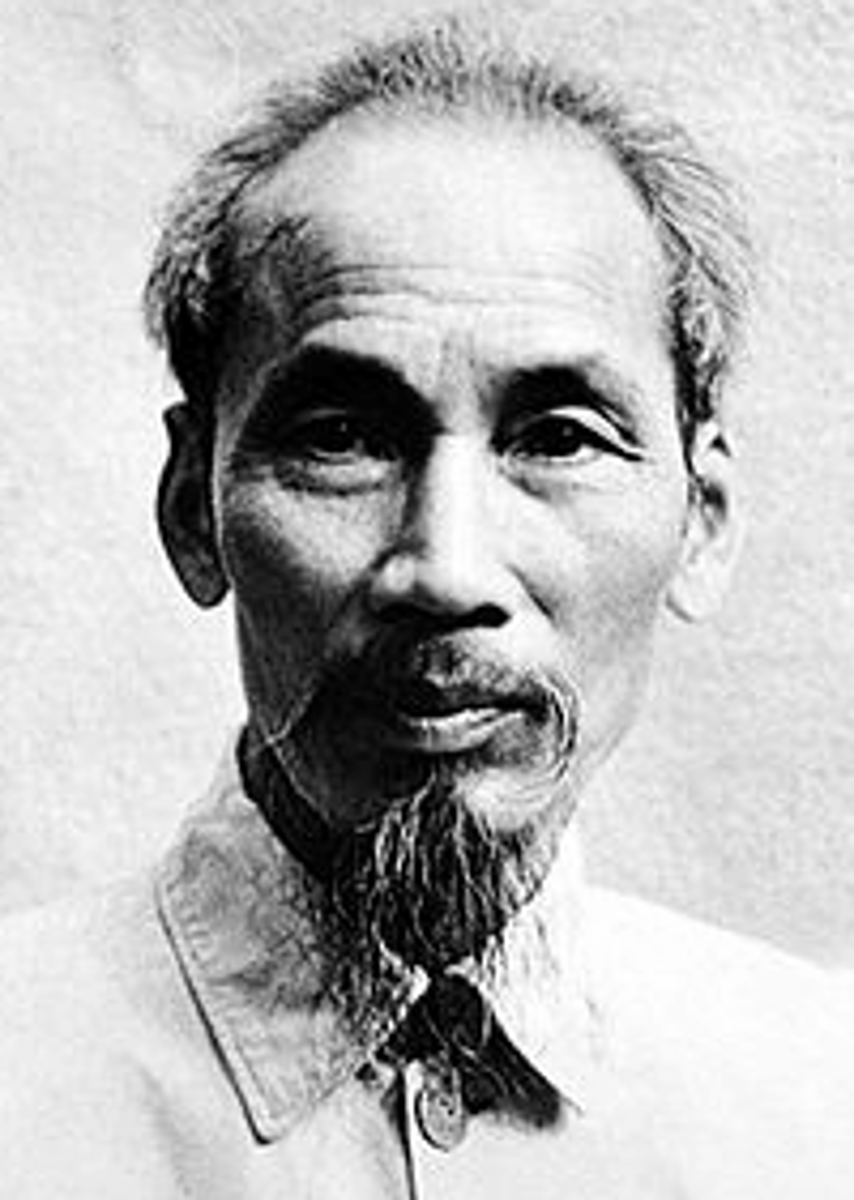
Vietnam in the Cold War
- Vietnam had a civil war of ideologies and was split into North (communist) and South (anti-communist)
- The US Supported the south, and the USSR supported the north
- Eventually Vietnam reunited (1976)
Abdel Nasser
Egypt's 1st Non-Monarch Leader (1954-1970)
- modern revolutionary military leader
- Goals =
1) Economic improvement
2) full independence
3) Non-Alignment
- Goal = Hydroelectricity!!! -> Wanted a DAM (US helps fund it)
- Also resisted the U.S. in the Cold War by accepting weapons from the U.S.S.R.
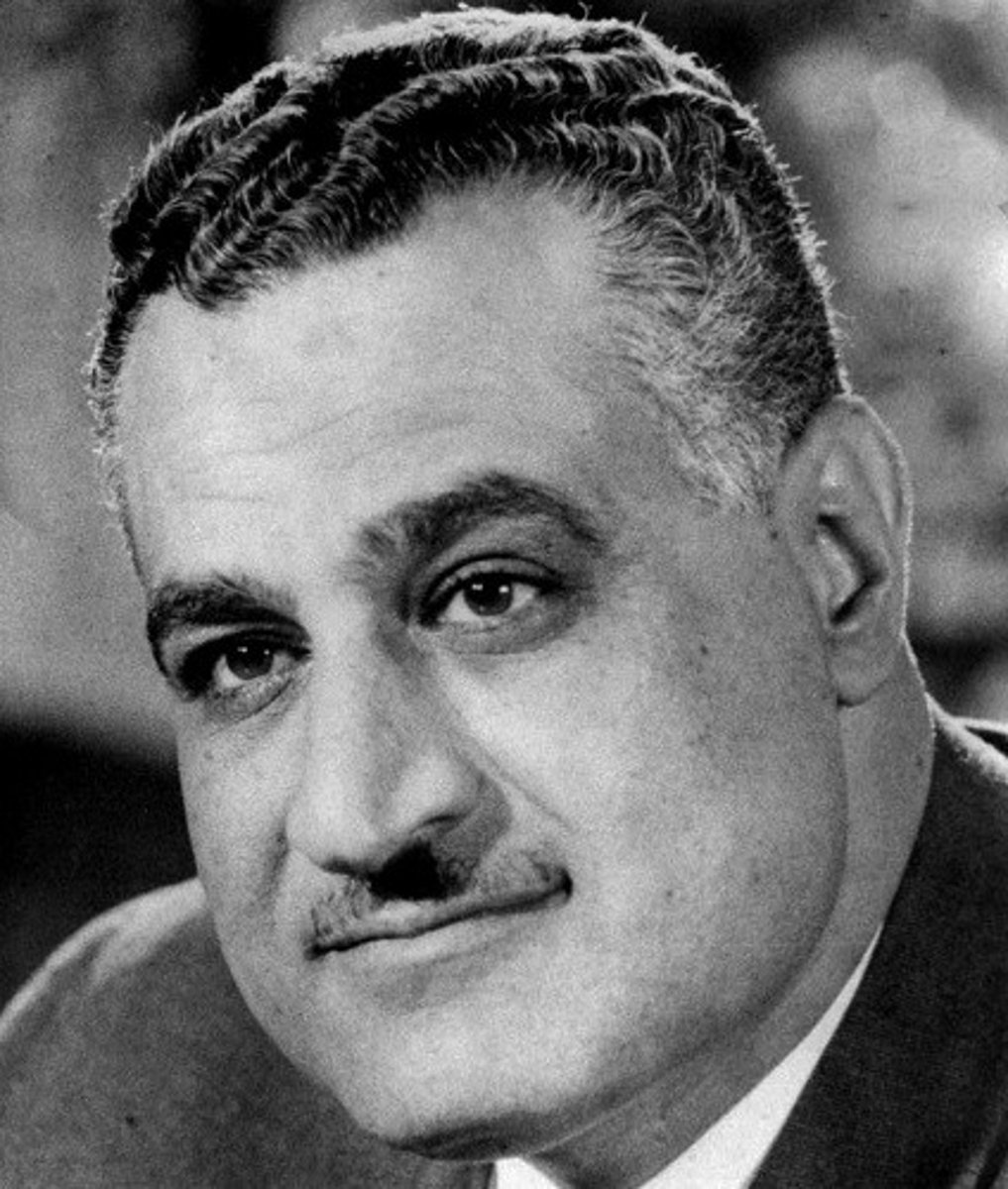
Suez Canal
A vital geographic region in Egypt controlled by the British
- Whoever controlled this region "controlled Europe"
- So Egypt, with USSR support, moves in and kicks Britain out
- Result: Everyone Panics! Egypt now controls OIL.
*Britain Israel and France attack tryna regain control, and USSR threatens nuclear war.
UAR - United Arab Republic
A new "COUNTRY" with a sense of nationalism based on ethnicity
- 1958-1971
- combined Egypt + Syria and hopefully other Arab countries would follow suit
- Result: Nasser's dream failed and Syria split off. Instead, he bases nationalism on RELIGION, not ethnicity
Pan-Arabism
Unity of ALL ARABS
- Supranational unity based on ethnicity
- Arabs of all religions, leaving out non-Arab Muslims
Ahmed Ben Bella
Leader of Algeria's independence movement against the French
- Won in 1962, became Algeria's first president
- Goal = socialist state
Accepted aid from BOTH the US and USSR
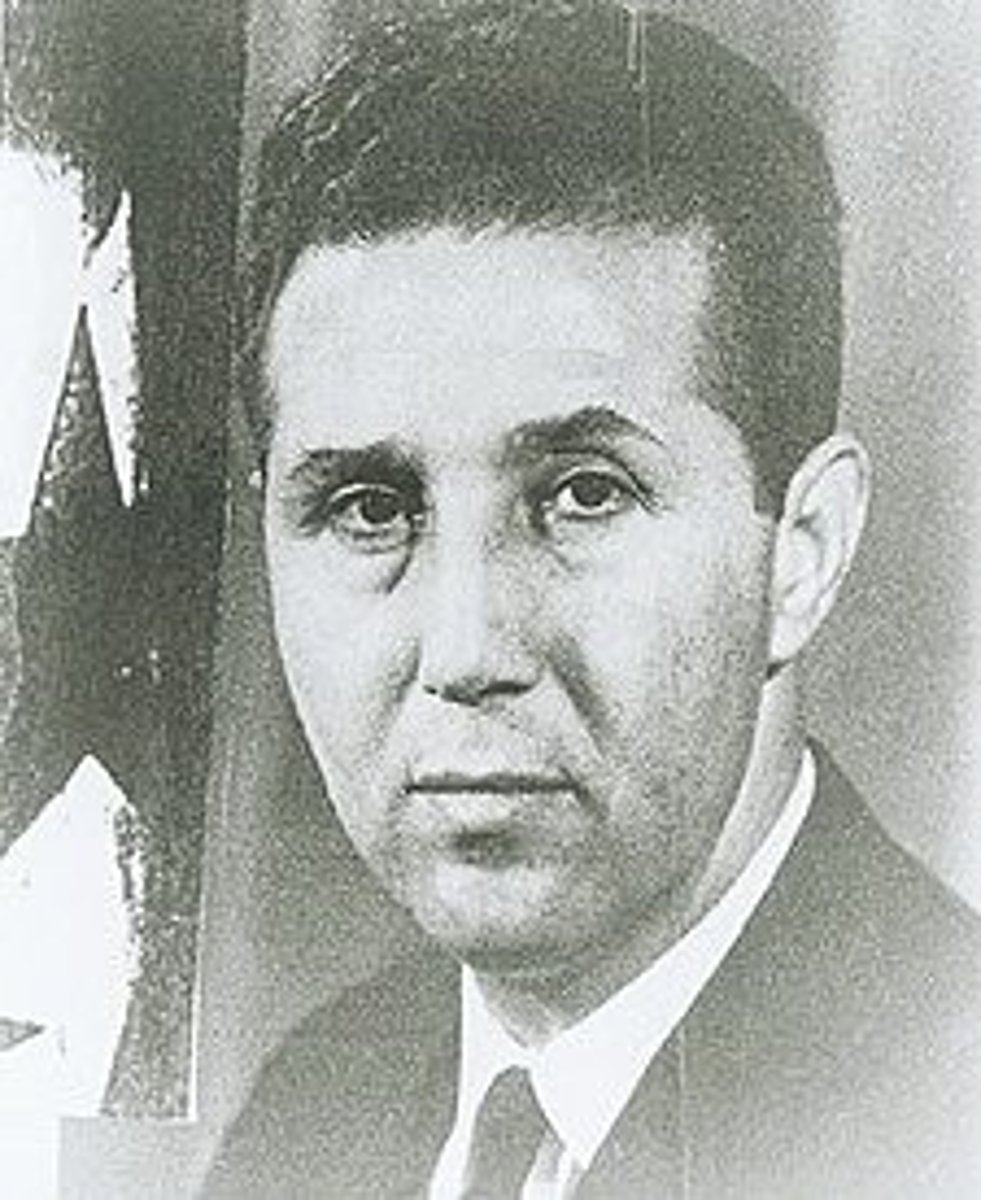
Kwame Nkrumah
1st president of Ghana and any African nation
- Western educated -> chosen by Ghana political party
- Goal = programs for education and manufacturing
- Eventually declared himself president for life and turned from democracy into dictatorship. (Became like the British)
- Result: Ghanian ppl removed him
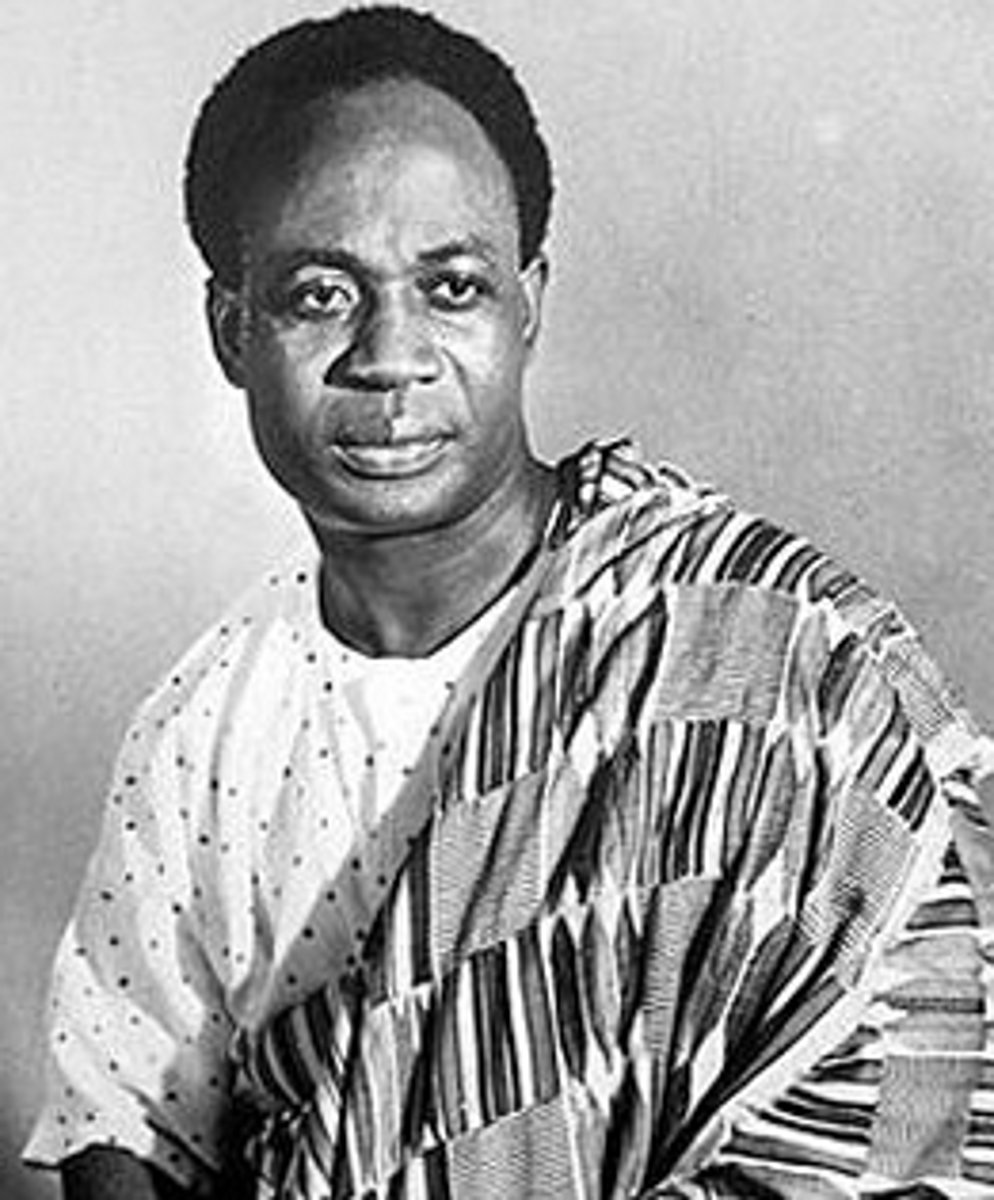
Ghana in Cold War
Technically were "non-aligned", but they were heavily leaning Communist
- "Socialist Africa for Africans"
DAM Ex. Nkrumah wanna make a dam, Russia offers to pay, the Queen then dances with him and shows im true goal of equality and dignity, so US pays for the Dam instead.
Pan Africanism
The idea that African people across countries should unite
- A potential "solution" for newly independent countries facing numerous conflicts after decolonization
- Occured at the All-African People's Conference (1958)
All African People's Conference
-1958
- Held in Ghana
- Goal = get rid of racism and colonialism.
- Goal = Give rights and freedoms to Africans
- Potential Solution: Pan-Africanism
British Colonization in Kenya
Context:
- The British divided and ruled: Via ethnicity
* British favored Luo ethnic group, and harshly treated Kikuyu
- There was white ownership in "white highlands"
- 4 million acres of land was taken from Kikuyu
Mau Mau
The violent resistance movement by the Kikuyu
- 1952-1960
- Goal = Take land back and Self-Rule
- Perspective: Kikuyu viewed their fighting for freedom, but the British saw it as a terrorist uprising
- Result: The British committed terrible acts such as bombings and concentration camps
Jomo Kenyatta
Kenyas new president (1963)
- Western educated
- Served in a British concentration camp (7 yrs)
- Lawyer: he tried to find a peaceful way to settle Kikuyu land disputes with white settlers.
- Family is Kikuyu
- Promoted non-violence
- Charismatic, gifted speaker
- Makes an effort for unity -> has advisory from different ethnic groups
- DEFINITELY sides with the US during Cold War (DID NOT want communism in Kenya)
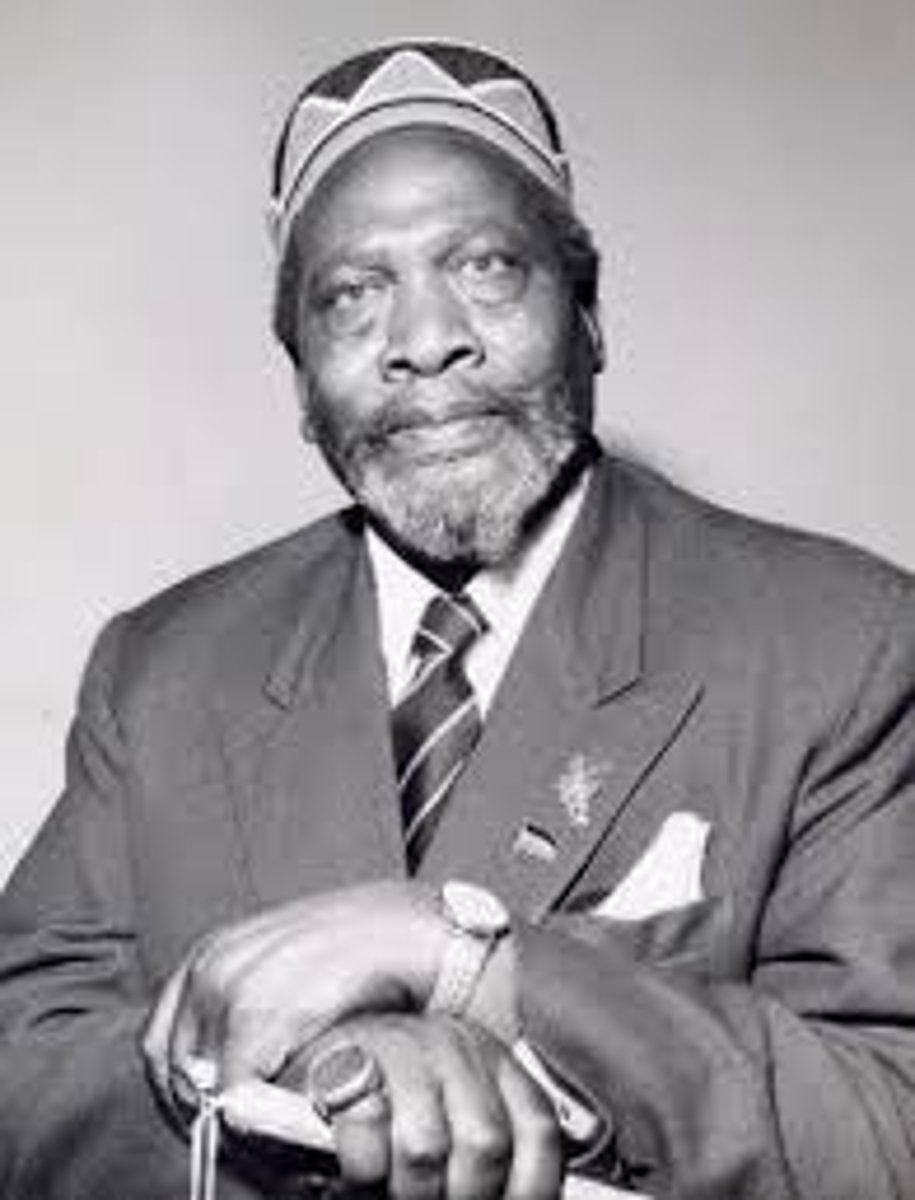
Maruge
- Kikuyu involved with Mau Mau
- British put him in Concentration Camp
- Illiterate (Since British didn't care to educate Kenyans)
- In 2000s, primary school education was made free for ALL
- He enrolls in 1st grade at age 84
Patricie Lumumba
Elected and first prime minister of independent Zaire (Congo)
- Soviet educated
- aroused fears in the US
- Efforts were made to get him out of office
- mysteriously assassinated (aided by US bc of Cold War and Belgium bc of economic interests)
-1925-1961
Congo/Zaire
An African colony colonized by Belgium
- After Lumumba became prime minister, a rebellion broke out (Congo Crisis)
- Belgium supported the Katanga group
Ways countries opposed colonization to become Independent
- used ideologies like nationalism and pan-nationalism to reverse the harm done by brutal colonial rule
- used the "tools of imperialism," such as language and the law, as "weapons" to resist Europe.
- used violent resistance